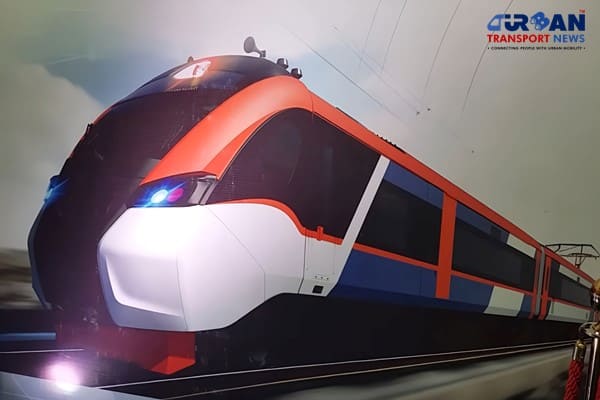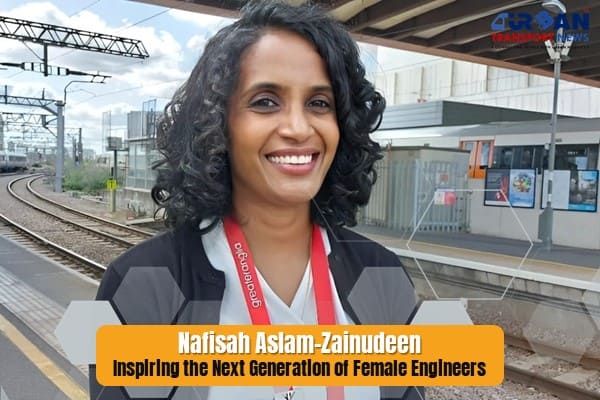 700,000 Lives Saved: iRAP Road Safety Projects make strides in Global Safety efforts
700,000 Lives Saved: iRAP Road Safety Projects make strides in Global Safety efforts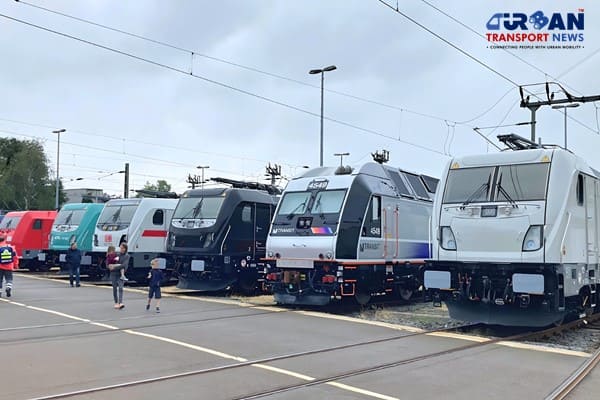 Alstom Reported €309 Million Loss in Fiscal Year 2023-24
Alstom Reported €309 Million Loss in Fiscal Year 2023-24 9 Innovative Technologies Enhancing Public Transport Efficiency
9 Innovative Technologies Enhancing Public Transport Efficiency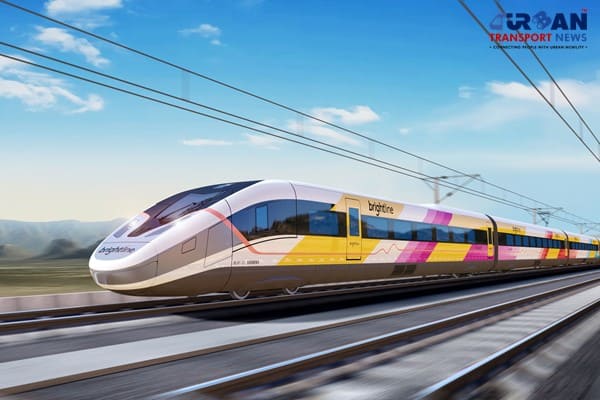 Siemens awarded contract to supply High Speed Train sets for Brightline West
Siemens awarded contract to supply High Speed Train sets for Brightline West Rome becomes first European city to offer Open Loop Transit payment for global cardholders
Rome becomes first European city to offer Open Loop Transit payment for global cardholders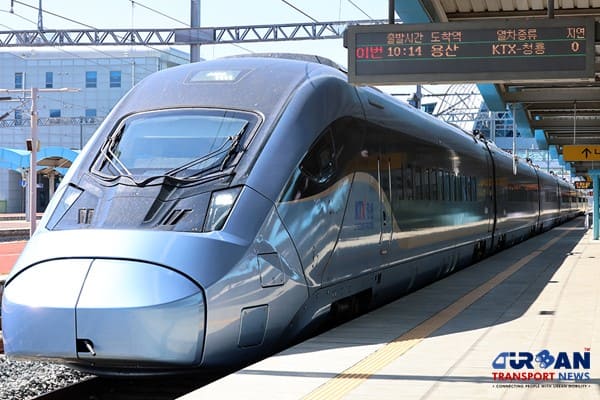 Korail unveils Next-Generation KTX-Cheongryong High-Speed Train
Korail unveils Next-Generation KTX-Cheongryong High-Speed Train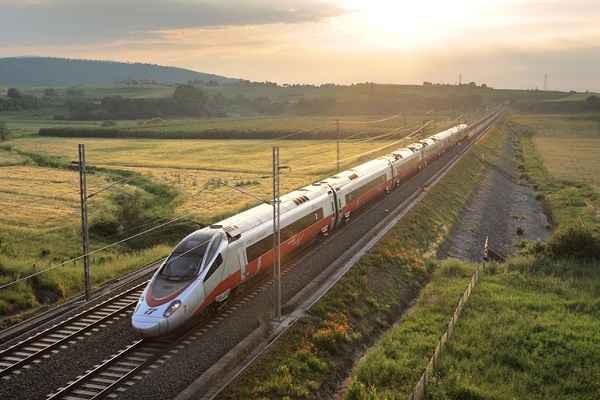 Turkey launches new 700 km High-Speed Rail Link connecting Istanbul and Sivas
Turkey launches new 700 km High-Speed Rail Link connecting Istanbul and Sivas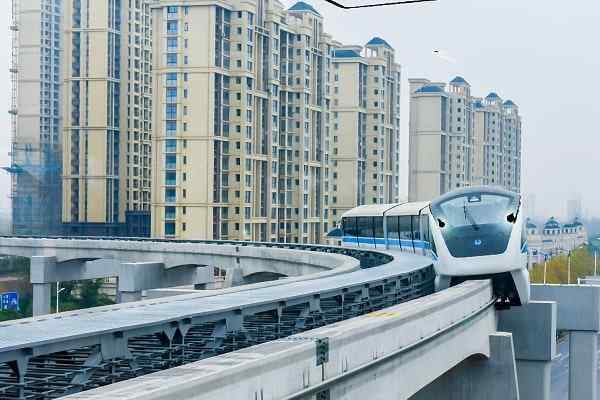 Japan agrees to resume stalled Colombo Light Rail Transit project of Sri Lanka
Japan agrees to resume stalled Colombo Light Rail Transit project of Sri Lanka Understanding the Critical Role of Systems Approach in Urban Railway Projects
Understanding the Critical Role of Systems Approach in Urban Railway Projects Exclusive Interview with Ms. Serda Urganciyan, Partner-CEO at Studio 88 Architecture
Exclusive Interview with Ms. Serda Urganciyan, Partner-CEO at Studio 88 Architecture
HS2 Project Cancelled, Know the Impact of UK Prime Minister Rishi Sunak's Decision
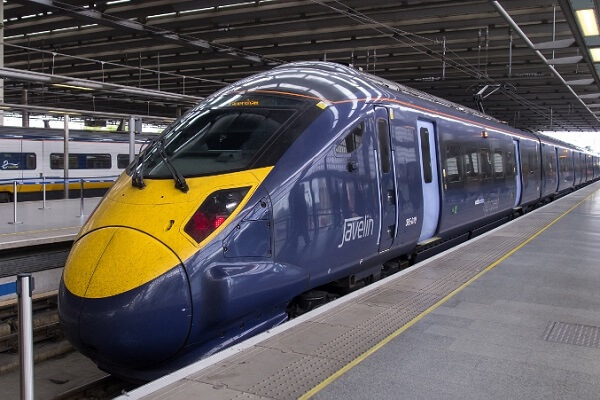 (Representative Image)
(Representative Image)
In a surprising turn of events, UK Prime Minister Rishi Sunak has decided to cancel a significant portion of the High-Speed Rail 2 (HS2) project, which has been one of Britain's most prominent infrastructure initiatives. This decision has sparked controversy and drawn criticism from various quarters. In this article, we will delve into the details of this decision, its potential consequences, and the reactions it has generated.
Understanding the HS2 Project
Before delving into the recent developments, let's first understand what the HS2 project entails. HS2, short for High-Speed Rail 2, was envisioned as the government's flagship transport project aimed at enhancing railway capacity and reducing travel times between London, Birmingham, and Manchester—three of England's largest cities. This project was expected to revolutionize transportation infrastructure in the UK, offering faster and more efficient rail connections between major economic hubs.
High Speed 2 (HS2) is a planned high-speed railway line and passenger train service network in England. This ambitious project aims to connect the West Midlands to London, with a branch leading to Birmingham, and extend its services to various destinations in the Midlands, Northern England, and Scotland. HS2 will become the second purpose-built high-speed railway line in Britain, with the first being High Speed 1, linking London to the Channel Tunnel. The project's completion is primarily scheduled between 2029 and 2033.
The HS2 route will span from London Euston railway station to Fradley in southern Staffordshire, featuring stations at locations like Old Oak Common in northwest London and Birmingham Interchange near Solihull. Additional connections will include spurs leading to a central Birmingham station and a junction with the West Coast Main Line (WCML) near Lichfield. The high-speed trains will operate at a maximum speed of 360 km/h (225 mph) on both HS2-specific tracks and existing conventional railway lines.
Since its initial announcement in 2013, the proposed HS2 network has undergone significant alterations. Originally planned as a 'Y'-shaped system branching north of Birmingham Interchange, changes have been made to various sections. Notably, the eastern branch was redirected to East Midlands Parkway railway station south of Nottingham in November 2021. In June 2022, the Golborne link to the WCML was canceled, followed by the cancellation of the western branch from Fradley to Manchester and the remaining eastern branch in October 2023. Despite these changes, the project is still expected to terminate at London Euston. The project's estimated cost has also risen, with projections reaching approximately £100 billion in 2023, up from £87 billion in 2019.
The Controversial Decision
Prime Minister Rishi Sunak's announcement to curtail the HS2 project has sent shockwaves throughout the country. The decision involves scrapping the Birmingham-to-Manchester high-speed line, which was seen as a critical component of HS2. The move has dashed hopes of delivering much-needed investment to the less affluent regions of the United Kingdom.
Instead of continuing with the project, the saved funds will be redirected towards "hundreds" of new transport projects in the English midlands and the north of the UK. According to Sunak, this reallocation of resources will result in £36 billion of investment that will make a significant difference across the nation.
The Economic Rationale
Sunak defended his decision by citing the economic rationale behind it. He argued that the economic case for HS2, a project that had been in the making for 14 years and faced repeated delays and cost overruns, had been "massively weakened" by the decline in business travel following the pandemic. This decline in demand for business travel, according to the Prime Minister, rendered the original business case for HS2 less viable.
Criticism from Various Quarters
However, the decision to halt HS2 has faced intense criticism from multiple quarters. Business leaders, politicians, and even members of the ruling Conservative Party have voiced their concerns. The decision has been characterized as a confusing policy shift by the UK government, raising questions about its commitment to major infrastructure projects.
The High-Speed Rail Group, representing rail and engineering firms, including giants like Siemens and Hitachi, released a statement describing this move as "the biggest and most damaging U-turn in the history of UK infrastructure." They argue that the revised plan for a railway may not deliver the transformational benefits that the north of England desperately needs.
The Impact on Investors
One significant concern is the impact on investors. Numerous investors had already committed substantial amounts of money, ranging from hundreds of millions to billions of pounds, based on the promise of HS2. Tom Wagner, co-chairman of US private equity firm Knighthead Capital Management, highlighted the importance of HS2 in their investment decision, emphasizing the improved connections it would bring to the UK. The uncertainty resulting from this decision could erode investor trust, which could have a considerable negative impact on the UK's economic prospects.
Potential Job Losses and Economic Consequences
Beyond the concerns about business and investor confidence, there is also the issue of potential job losses. Scaling back the HS2 project is likely to have a chilling effect on the UK's construction industry. Mark Reynolds, CEO of construction firm Mace Group, one of the contractors involved in the project, expressed the need for detailed plans for new rail and road projects to instill confidence in investors and allow the construction sector to plan for the future.
The labor union GMB warned that cuts to HS2 could result in "hundreds" of job losses. This comes at a time when the UK's political instability was already perceived as hindering economic growth and making it even more challenging to fund and deliver new infrastructure projects that the country desperately needs.
The Bigger Picture
This decision to scrap a significant portion of HS2 is just the latest in a series of policy shifts by the UK government. It follows the recent decision to delay the ban on the sale of new gas and diesel cars by five years, a move that drew criticism from leading automakers.
In response to the criticism, Prime Minister Sunak defended the decision, stating that "facts have changed" and necessitated a change in direction. He outlined "ambitious" plans for new east-west transport links known as "Network North" and assured that the government would work to deliver quicker rail travel and increased rail capacity between Birmingham and Manchester.
The HS2 project has garnered both supporters and opponents. Proponents believe that it will provide much-needed capacity and reliability, accommodating passenger numbers expected to return to pre-COVID-19 levels while promoting a shift towards rail travel. On the other hand, opponents argue that the project is neither environmentally nor financially sustainable, raising concerns about its long-term viability.
Conclusion
The decision to halt a substantial part of the HS2 project has created significant controversy and raised questions about the UK government's commitment to major infrastructure initiatives. While it may save funds in the short term, the long-term consequences on investor confidence, job prospects, and the nation's ability to deliver essential infrastructure projects remain uncertain. It is a reminder that decisions regarding major projects should carefully consider the broader economic and societal implications.





